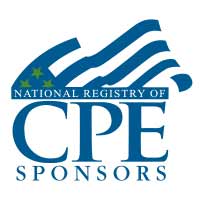We currently have no scheduled session for this Course. If you are interested in running this course, please contact our Training Department at [email protected]
INTRODUCTION
This GLOMACS Mechanical Seals training seminar covers a large range of seal types like Pusher Seals, Non-Pusher Seals, Cartridge Seals, Split Seals, Double Seals, Tandem Seals, Spring Seals, Bellow Seals and provides detailed seal classification.
This GLOMACS training seminar explains the purpose and basic components of mechanical seals. The participant is instructed in the identification and characteristics of materials commonly used to make seal faces and seal hardware, and to understand the limitations of seals. Various seal designs and their application will be described.
This GLOMACS Mechanical Seals training seminar will cover mechanical seal troubleshooting and seal selection. Also, the seminar describes conditions that may affect mechanical seal performance. The steps necessary to prepare to remove, and to remove, a failed mechanical seal will be demonstrated. The seminar trains the participant in failure analysis to determine the cause of seal failure and identify the means to correct the problem or condition that caused the failure. Seal disassembly and reassembly, 0-ring installation, and seal installation will be demonstrated
This GLOMACS training seminar will highlight:
- Principle of operation of mechanical seals
- Mechanical seal designs and arrangements
- Selection of mechanical seal
- Failure analysis of mechanical seals
- Maintenance of mechanical seals
Objectives
At the end of this GLOMACS training seminar, you will learn to:
- Identify the basic components of a mechanical seal
- Explain how process fluid, temperature and operational conditions affect mechanical seals
- Understand how to select a mechanical seal
- Describe seal damage caused by chemical attack, heat and mechanical action
- Identify the correct tools and procedures for maintaining mechanical seal
Training Methodology
This GLOMACS Mechanical Seals training seminar will be taught in interactive lecture format, with round table discussions for certain topics. Case studies are employed to highlight particular points and appropriate video material used to illustrate particular conditions. Animated cut-sections give a deep insight into mechanical seal operation and how mechanical seals work.
Organisational Impact
The organization will benefit from this GLOMACS training seminar by:
- Improving plant reliability by the avoidance of unplanned equipment failures in service
- Improving seal operating and maintenance techniques
- Enabling better identification and specification of new and replacement seals
- Saving money and time by enhancing troubleshooting skills
- Avoiding repetitive failures by carrying out failure analysis on a mechanical seal
- Extending the life of mechanical seals
Personal Impact
On a personal level, delegates will benefit in the following way:
- Enhancing their basic knowledge related to selection and maintenance of mechanical seal
- Better understanding of how manufacturers design and develop mechanical seals for environment
- Improve their ability to select the appropriate mechanical seal.
- Improve their ability to troubleshoot seal problems and avoid recurrence
- Better control of the management of pumps and compressor maintenance and operation
- Better understanding of mechanical seal installation and maintenance procedures
WHO SHOULD ATTEND?
This GLOMACS Mechanical Seal training course is directly relevant to those working in process plants using rotating equipment fitted with mechanical seals and associated support equipment.
This GLOMACS training course is suitable to a wide range of professionals but will greatly benefit:
- Mechanical Engineers
- Mechanical Technicians
- Maintenance Engineers
- Plant Engineers
- Operators
DAY 1
Fundamentals of Mechanical Seals
- Advantages of Mechanical Seals
- Operating Principles of Mechanical Seals
- Basic Parts of Mechanical Seals
- Barrier Fluid
- Thermal Considerations
- Hydraulic balance
- Classifications of Mechanical Seals
DAY 2
Environmental Control of Mechanical Seals
- Sealing Abrasives
- Sealing Crystallizing Fluid
- Temperature Control
- Seal Flushing
- API Seal Flush Plans
- Controlling Fugitive Emissions from Mechanical Seal
DAY 3
Selection of Mechanical Seals
- Materials of Construction
- Mechanical Seal Specifications
- ANSI/API 682 Seal Specifications
- Seal Arrangement Selection
- Seal Design Selection
- Secondary Sealing Devices
- Case Studies
DAY 4
Mechanical Seal Troubleshooting and Failure Diagnosis
- Causes of Mechanical Seal Failure
- Seal Failure Analysis
- Seal Face Deflection
- Seal Failure due to Heat Buildup
- Troubleshooting
- Examples and Case Studies
DAY 5
Mechanical Seal Installation and Maintenance
- Equipment Check Points
- Seals Check Points
- Installation of a Mechanical Seal
- Required Maintenance Tools
- Removal of a Mechanical Seal
- O-ring installation
- Seal Reassembly
- On successful completion of this training course, GLOMACS Certificate will be awarded to the delegates
- Continuing Professional Education credits (CPE) : In accordance with the standards of the National Registry of CPE Sponsor, one CPE credit is granted per 50 minutes of attendance
Endorsed Education Provider
GLOMACS is registered with the National Association of State Boards of Accountancy (NASBA) as a sponsor of continuing professional education on the National Registry of CPE Sponsors. State boards of accountancy have final authority on the acceptance of individual courses for CPE credit. Complaints regarding registered sponsors may be submitted to the National Registry of CPE Sponsors through its website: www.NASBARegistry.org


